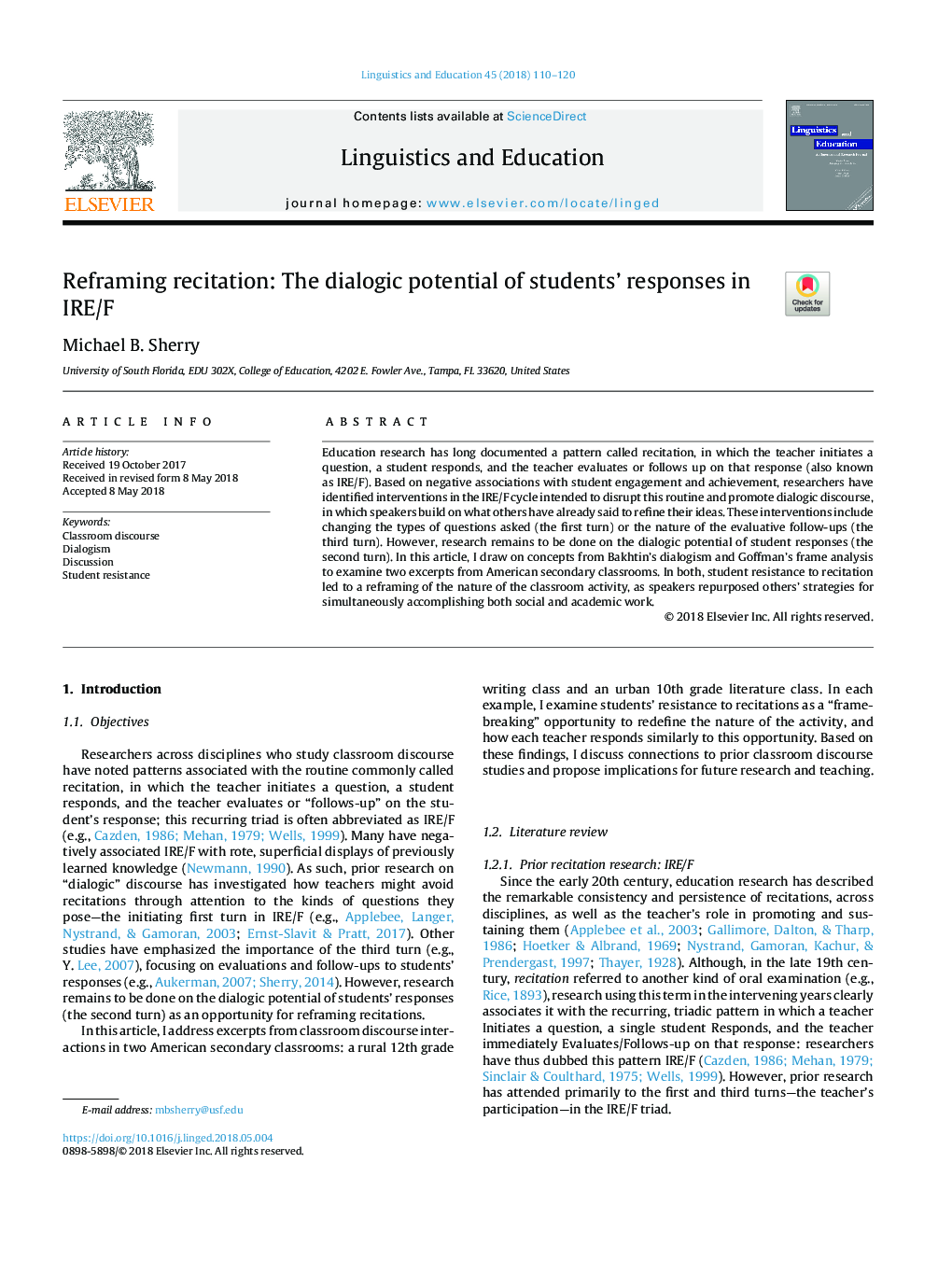| Article ID | Journal | Published Year | Pages | File Type |
|---|---|---|---|---|
| 6845917 | Linguistics and Education | 2018 | 11 Pages |
Abstract
Education research has long documented a pattern called recitation, in which the teacher initiates a question, a student responds, and the teacher evaluates or follows up on that response (also known as IRE/F). Based on negative associations with student engagement and achievement, researchers have identified interventions in the IRE/F cycle intended to disrupt this routine and promote dialogic discourse, in which speakers build on what others have already said to refine their ideas. These interventions include changing the types of questions asked (the first turn) or the nature of the evaluative follow-ups (the third turn). However, research remains to be done on the dialogic potential of student responses (the second turn). In this article, I draw on concepts from Bakhtin's dialogism and Goffman's frame analysis to examine two excerpts from American secondary classrooms. In both, student resistance to recitation led to a reframing of the nature of the classroom activity, as speakers repurposed others' strategies for simultaneously accomplishing both social and academic work.
Related Topics
Social Sciences and Humanities
Arts and Humanities
Language and Linguistics
Authors
Michael B. Sherry,
